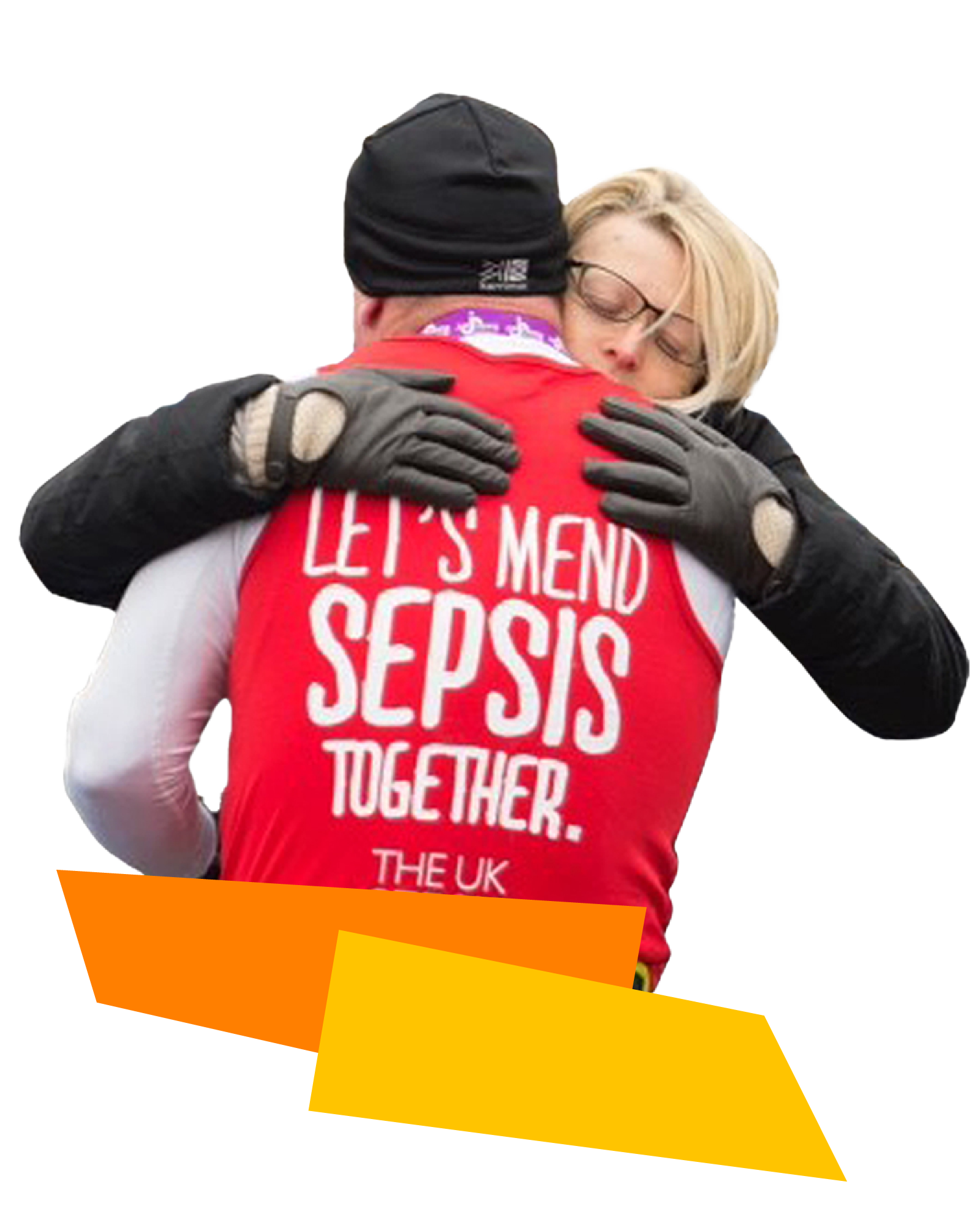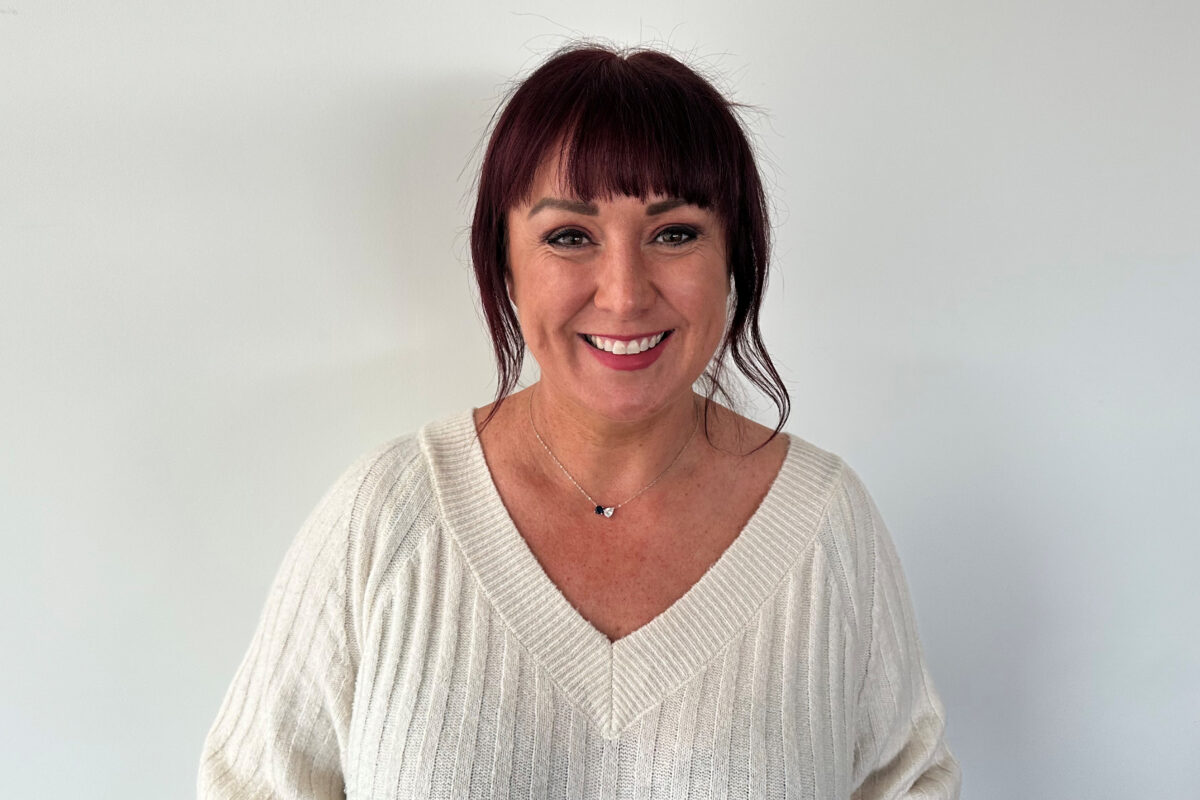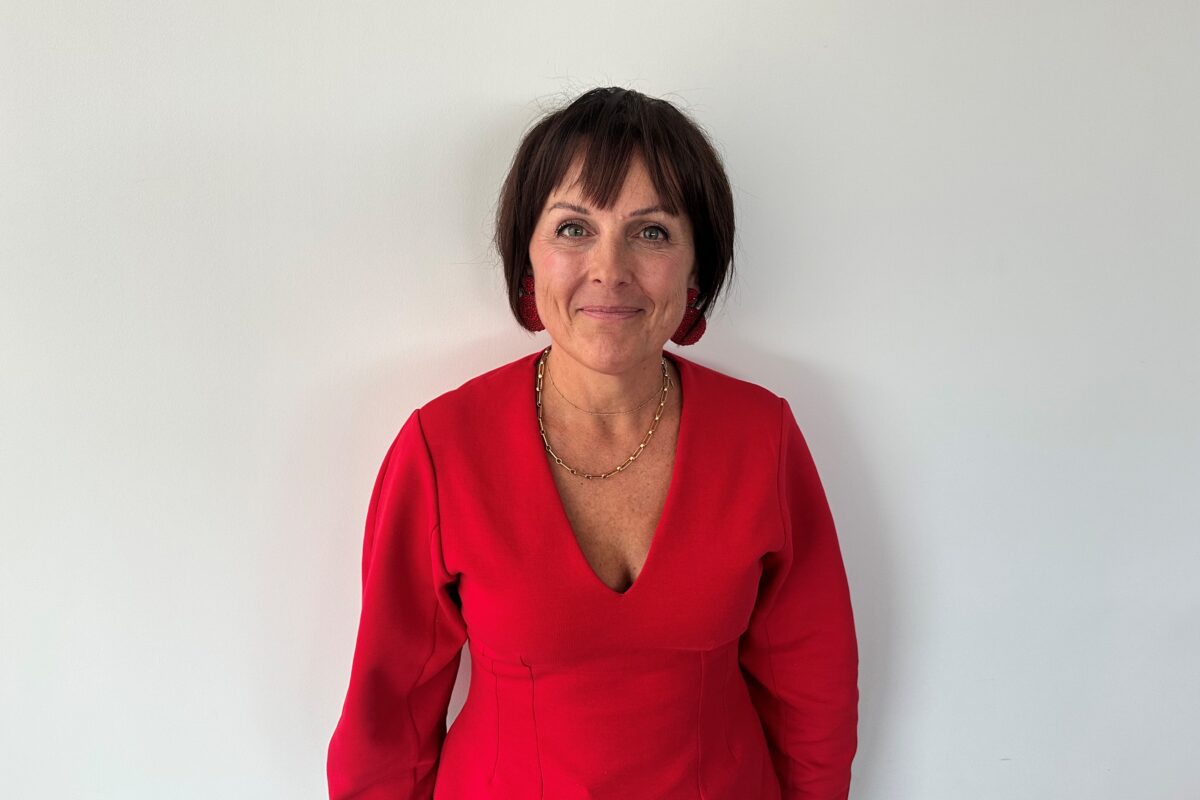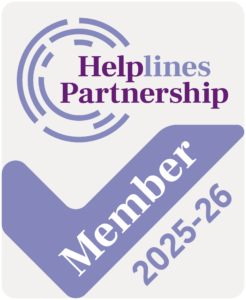Check sepsis symptoms >
Supporting you
No matter what stage you are at in your sepsis recovery or bereavement journey, we are here for you.

We can help you cope with the impact of sepsis
Whether you’ve just left hospital, are caring for someone who has experienced the condition or have tragically been bereaved by sepsis, we know how much life can change.
Our Support Nurses can provide confidential support and information to help you navigate the complexities of life after sepsis.

Support available to you
Call our Nurse-led helpline: 0808 800 0029
Usual working hours 9am – 4pm Monday to Friday (excluding Bank Holidays)
Click here to schedule a call-back from one of our Support Nurses
Request email support by completing this form.
We aim to reply within 48 hours
If you call the helpline, the first person you speak to might not be medically trained. They can take a short message and connect you with one of the Support Nurses or schedule a call–back if required. If nobody is available to take your call, please leave a message and we’ll get back to you as soon as we can, usually within 48 hours. We appreciate your understanding.
We’re a small but hugely enthusiastic team… Our core working hours are 9am – 4pm Monday to Friday, excluding Bank Holidays.
Meet the support nurses

Oliver Jones
Lead Support Nurse

Emma Collins
Support Nurse

Katie Hobday
Support Nurse
UKST SERVICES
What do we do?
Our Support Nurses can:
- Listen empathetically to your situation, provide emotional support and help you to better understand what you may have experienced
- Provide clear information about sepsis and help answer related questions
- Help you come to terms with your recovery journey and suggest options that may help with some of the problems you could be experiencing
- Provide details of peer support groups
- Signpost to other appropriate services that can offer further specialist information and support
- Provide information on how to raise concerns about care or treatment
- If you’ve lost someone to sepsis, we can help you understand what may have happened and try answer any questions you might have.
What do we not do?
Our Support Nurses don’t:
- Seek to replace or undermine the relationship between you and your healthcare professional
- Provide advice specific to any individual, either general, pharmaceutical or medical
- Make referrals on behalf of service users
- Offer treatment, diagnosis or tests
- Provide financial assistance
- Become directly involved in any individual complaints or concerns
- Provide formal counselling services.
Please be aware that our helpline is not an emergency number. If you have a specific medical enquiry please call 111, or in case of emergency call 999.
Please note: We will not tolerate inappropriate, abusive or threatening behaviour towards our staff. If this happens, we will end the call and block abusive callers from using our service.
What information we collect and how it's stored
Confidentiality
Confidentiality is a fundamental element of the UKST support service. It is an expression of respect for the people who contact the service and of their right to privacy. It assures people that the UKST helpline is a safe place to express concerns freely. Maintaining confidentiality means respecting the trust that people place in the service if they share personal details and information about their situation or experience. Details may be shared between Support Nurses when necessary for practical reasons or reasons of staff support and this is done with respect. No personal information about people who contact the UKST support service is given, or otherwise made available, to anyone outside the UKST, unless the enquirer has specifically agreed or requested to participate in publicity or other activities relating to their condition or circumstances.
Each member of staff is responsible for maintaining the confidentiality of information entrusted to them by working within GDPR guidelines. If a member of staff is unsure about what action they should take regarding confidential information in a particular situation, they should discuss this with the Lead Nurse, or their deputy in their absence.
Contact Records
- The key principle of the support service record keeping is to store the minimum information possible to accurately record the nature of the contact, and the information and support provided. This is to further enhance the service for the service user, should they have multiple contacts. These can be anonymised at the request of the service user
- Past medical history should only be documented if specifically relevant to the contact
- Helpline workers are trained to ask appropriate questions which will help to clarify the service users information and/or support
- All records will be stored digitally, and no printed or written records will be stored
- All support contacts are recorded on a CRM as constituent code to reflect the nature of the contact, e.g. survivor, bereaved
- Each contact is also recorded anonymously on an excel spread sheet for statistical purposes. The only identifying information will be the contact constituent number from the CRM
- Access to the CRM is password protected. Each support team member is responsible for securing their own password details and should not use remember password options on any devices
- Support contacts on the CRM are only accessible to the UKST support team staff and no personal details are passed on to third party.
Please see our privacy policy here for further information
Occasions where we would break confidentiality
The UKST Support Service is a free service where anything discussed will remain confidential, unless there is a risk of serious harm to you or others, and in some other specific circumstances outlined below.
- Where information of terrorism, money laundering or a bomb threat is disclosed to us
- If we receive a court order or in order to comply with our legal obligations to share information
- If we become aware, hear about or suspect that abuse/harm may have taken place or may occur in relation to any adult or child
- In the event that our staff or service is abused
- If we believe that someone is taking steps to end their life or at risk of serious harm
If appropriate, and where possible, we will inform you that we’re going to do this.


sepsis survivor support
If you’ve survived sepsis and have left hospital with more questions than answers then UKST is here for you. We can help you process what you experienced, answer questions about some of the common after effects, tell you more about Post Sepsis Syndrome and help prepare you to return to work – whether that’s through a 1:1 conversation with a Support Nurse or through one of our peer support groups.
Support for relatives
If you’re caring for someone who has had sepsis, we can help you understand what to expect from their recovery and mange expectations for the future. Our Support Nurses can provide a 1:1 support call or you can join one of our peer support groups.

bereavement support
We are here to help anyone who has lost someone to sepsis. Sepsis is a devastating condition that can swoop in and take our loved ones so quickly, and what you have experienced is often traumatic and bewildering. We can provide a safe space for you to share how you feel through a 1:1 conversation, and also our peer support groups. We will reassure you and try to answer any questions you have.


Support & Connect Groups
Our Support Nurses facilitate online groups for people affected by sepsis, providing a lifeline for both survivors and those bereaved. These groups offer a supportive community where members can connect, share experiences, and find comfort form others who understand their journey.
Additionally, our amazing volunteers host a selection of face-to-face sepsis recovery groups in various locations across the UK. These groups focus on peer support, enabling participants to build resilience, gain insights, and receive emotional support from a network who truly empathise with their challenges.
Legal advice
If you or your relative/friend has become critically ill very quickly, you may feel like you haven’t received enough information. Often people haven’t understood what’s happening or why it has happened. If this is how you feel, there are several options to consider.

Support resources
We have a suite of free resources available to you. These include a clear guide as to what sepsis is, a Recovery Diary to help you track your recovery, a guide to help navigate grief, and many more.
By signing up for a free account we can provide you with tailored resources according to your personal circumstances, and notify you when new resources are added to our website.
Sepsis costs the UK economy up to £15.6 billion each year. Together we can change this.
By raising public awareness levels that sepsis is a medical emergency, people are more likely to seek treatment sooner and are therefore less likely to be unable to work following sepsis.
Donate
We’re the UK’s only charity providing free-at-point-of-access support to people affected by sepsis. £25 pays for a one-hour conversation with a Support Nurse, which could be all someone needs in a moment of crisis. Please help us to continue to provide these vital services in the future – we receive no government funding so are reliant on our incredible supporters.
For health professionals
If you are looking to help a patient affected by sepsis, please encourage them to create an account to access personalised resources. Don’t forget, UKST has a range of free clinical tools and e-learning materials that can be used to ensure that the best sepsis care is provided in your institution.